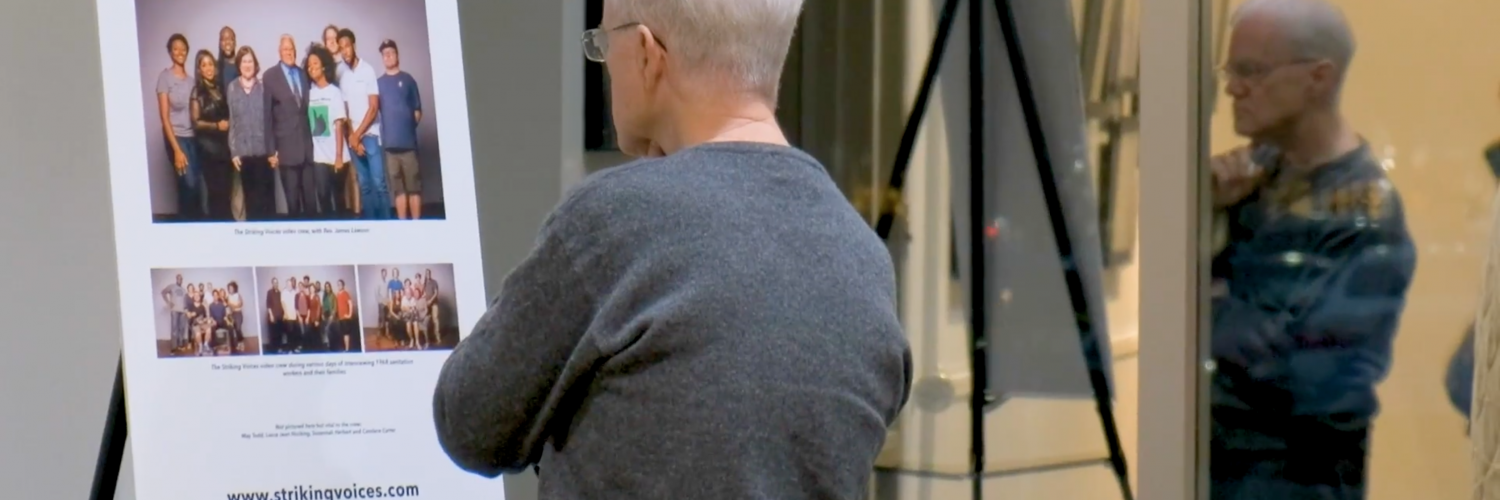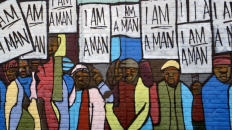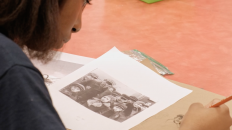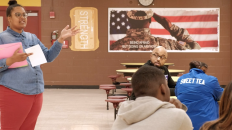Emily Yellin was six-years old when her parents held the first meeting of their Memphis Search for Meaning Committee at her home in 1968. She asked if she could attend the meeting; her mother said yes, but she’d have to be the secretary and take notes if she did. Here is what Emily wrote: “We had a meeting.”
David and Carol Lynn Yellin were journalists; they had the vision to realize the importance of the world-changing events that were occurring in Memphis in 1968, not just the assassination of Dr. King, but also the sanitation strike that brought him to their city. Because the Yellins did not feel that local media was covering the events adequately, they began doing so themselves. The Memphis Search for Meaning Committee records they compiled beginning that year, consisting of newspaper clippings, publications, documents (including Emily’s pithy notes from that first meeting!), correspondence, ephemera, oral interviews, and film and videotape footage, are archived at the Preservation and Special Collections Department of the University Libraries at the University of Memphis
We meet Emily, now an author and journalist herself, and some of her Striking Voices crew as they visit the archives, which is now a treasure for civil rights researchers and open to all. She talks to us about continuing her family’s legacy of documenting the sanitation strike of 1968 and its aftermath. Striking Voices is her multimedia journalism project focusing on the Memphis sanitation workers and their families. A series of video stories, based on years of in-depth interviews with some of the men and their wives and children and produced in partnership with and running on TheRoot.com, are the center of the project. Emily explains that the stories of these men are so often only chapters in the story of someone or something else and usually told by an expert or journalist. In Striking Voices they are the focus, and they tell their own stories.
We join Emily as she introduces the archives for the first time to her assistant producer, Kierra Turner, who shares with us that she didn’t learn about the sanitation strike in school. She says she is grateful to be working on the project and learning about the strong men and women that paved the way for her to become the person that she wants to be. Kierra is headed to USC film school in the fall.
We also talk with Darius Williams, the still photographer for Striking Voices. We follow him to one of the film shoots where he creates a photographic portrait of each person to accompany their video interview by Emily. The presence of Darius, along with that of a makeup artist, helps create an atmosphere of dignity where the interviewees feel loved and honored. His lovingly executed portraits of the men and their families also help commemorate their stories and serve as another record for future generations. Darius shares that hearing these stories, told sometimes for the first time, challenges him to tell the stories of people doing extraordinary work today.
We are honored to be able to tell the story of this crew doing the extraordinary work of teaching and inspiring us by helping us see and hear those formerly unseen and unheard.




